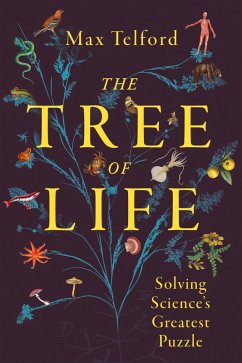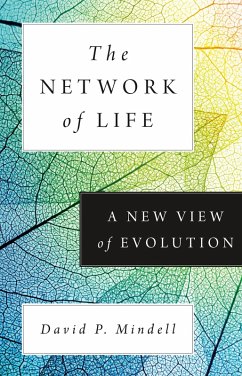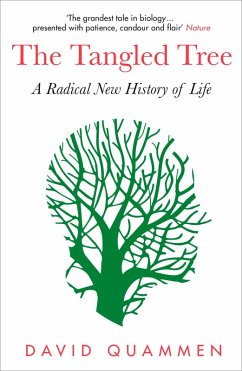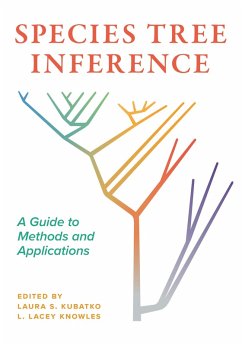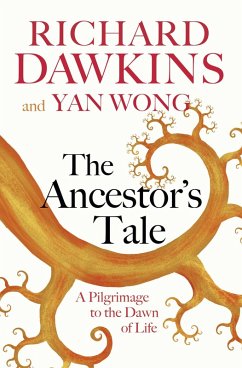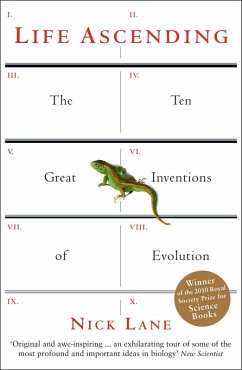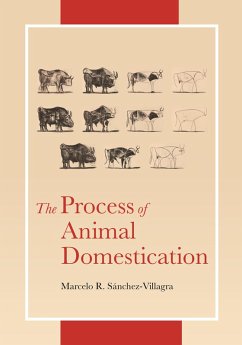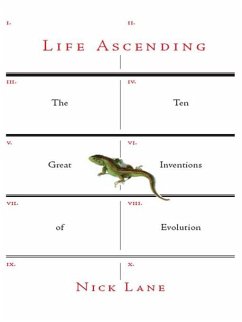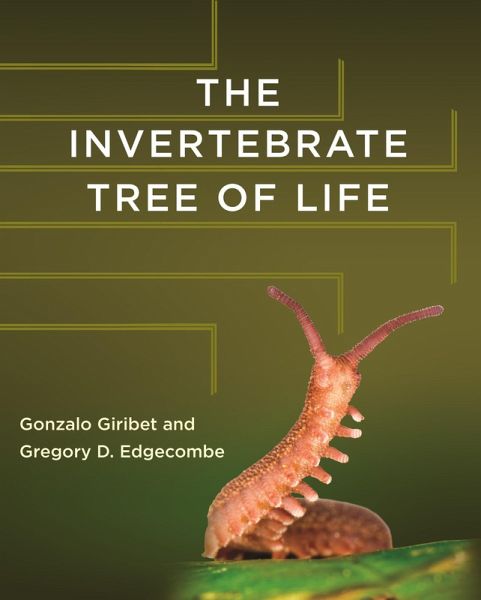
The Invertebrate Tree of Life (eBook, ePUB)
Versandkostenfrei!
Sofort per Download lieferbar
63,95 €
inkl. MwSt.
Weitere Ausgaben:

PAYBACK Punkte
32 °P sammeln!
The most up-to-date book on invertebrates, providing a new framework for understanding their place in the tree of lifeIn The Invertebrate Tree of Life, Gonzalo Giribet and Gregory Edgecombe, leading authorities on invertebrate biology and paleontology, utilize phylogenetics to trace the evolution of animals from their origins in the Proterozoic to today. Phylogenetic relationships between and within the major animal groups are based on the latest molecular analyses, which are increasingly genomic in scale and draw on the soundest methods of tree reconstruction.Giribet and Edgecombe evaluate th...
The most up-to-date book on invertebrates, providing a new framework for understanding their place in the tree of life
In The Invertebrate Tree of Life, Gonzalo Giribet and Gregory Edgecombe, leading authorities on invertebrate biology and paleontology, utilize phylogenetics to trace the evolution of animals from their origins in the Proterozoic to today. Phylogenetic relationships between and within the major animal groups are based on the latest molecular analyses, which are increasingly genomic in scale and draw on the soundest methods of tree reconstruction.
Giribet and Edgecombe evaluate the evolution of animal organ systems, exploring how current debates about phylogenetic relationships affect the ways in which aspects of invertebrate nervous systems, reproductive biology, and other key features are inferred to have developed. The authors review the systematics, natural history, anatomy, development, and fossil records of all major animal groups, employing seminal historical works and cutting-edge research in evolutionary developmental biology, genomics, and advanced imaging techniques. Overall, they provide a synthetic treatment of all animal phyla and discuss their relationships via an integrative approach to invertebrate systematics, anatomy, paleontology, and genomics.
With numerous detailed illustrations and phylogenetic trees, The Invertebrate Tree of Life is a must-have reference for biologists and anyone interested in invertebrates, and will be an ideal text for courses in invertebrate biology.
In The Invertebrate Tree of Life, Gonzalo Giribet and Gregory Edgecombe, leading authorities on invertebrate biology and paleontology, utilize phylogenetics to trace the evolution of animals from their origins in the Proterozoic to today. Phylogenetic relationships between and within the major animal groups are based on the latest molecular analyses, which are increasingly genomic in scale and draw on the soundest methods of tree reconstruction.
Giribet and Edgecombe evaluate the evolution of animal organ systems, exploring how current debates about phylogenetic relationships affect the ways in which aspects of invertebrate nervous systems, reproductive biology, and other key features are inferred to have developed. The authors review the systematics, natural history, anatomy, development, and fossil records of all major animal groups, employing seminal historical works and cutting-edge research in evolutionary developmental biology, genomics, and advanced imaging techniques. Overall, they provide a synthetic treatment of all animal phyla and discuss their relationships via an integrative approach to invertebrate systematics, anatomy, paleontology, and genomics.
With numerous detailed illustrations and phylogenetic trees, The Invertebrate Tree of Life is a must-have reference for biologists and anyone interested in invertebrates, and will be an ideal text for courses in invertebrate biology.
- A must-have and up-to-date book on invertebrate biology
- Ideal as both a textbook and reference
- Suitable for courses in invertebrate biology
- Richly illustrated with black-and-white and color images and abundant tree diagrams
- Written by authorities on invertebrate evolution and phylogeny
- Factors in the latest understanding of animal genomics and original fossil material
Dieser Download kann aus rechtlichen Gründen nur mit Rechnungsadresse in A, D ausgeliefert werden.




